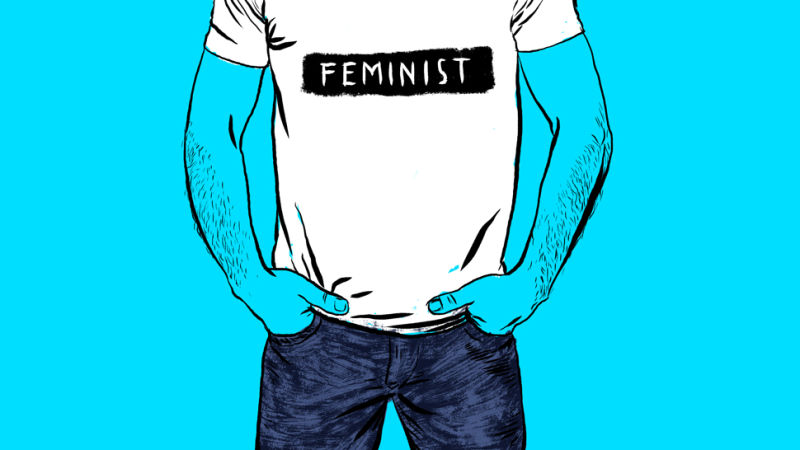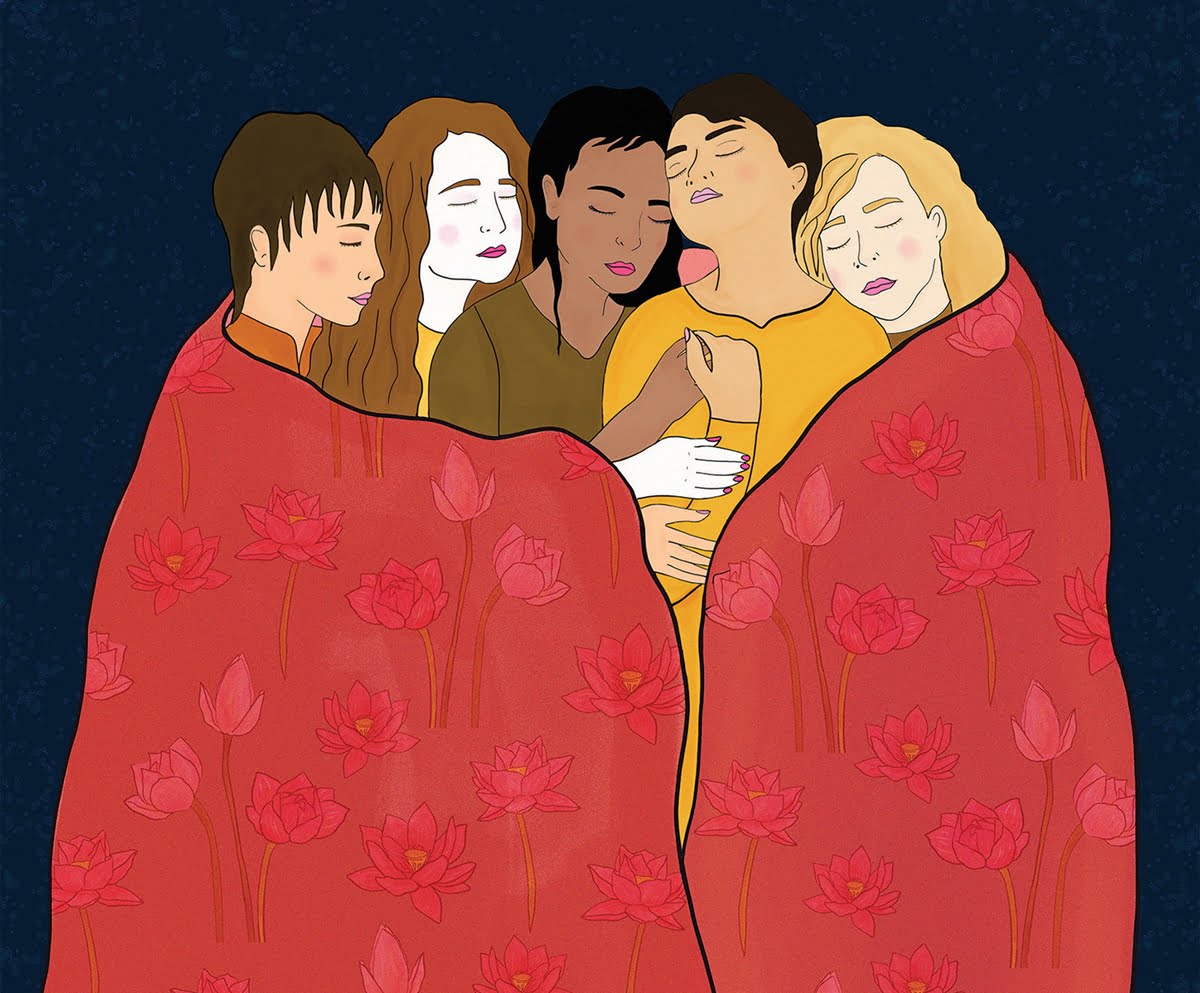Is it fair to hold those most affected by a particular cause, to higher standards than their allies? In the feminist movement, is it only a “natural” supposition that women or gender non-binary or queer individuals ought to be “better” feminists than their cis-gender male allies? Does the onus of “fighting” their way up the rungs in the power hierarchy or perhaps dismantling it altogether, which is on those in the margins of gender identity, supersede the responsibility of their more privileged allies unlearning their own biases and revoking their own privilege?
In the feminist movement, is it only a “natural” supposition that women or gender non-binary or queer individuals ought to be “better” feminists than their cis-gender male allies?
Following the 90s, which is believed to have signalled the onset of the third wave feminism, the feminist movement started being viewed by many as a potentially divisive platform. There emerged various contending views on the question of what feminism stood for and whether or not it truly was an inclusive movement aimed at equality.
Despite concerns regarding the scope and reach of the feminist movement, its relevance strengthened and diversified, especially with the advent of social media. The online space created a means of furthering the feminist movement and forging solidarities while transcending spatial boundaries. It has also proven to be an interesting space for allies of the feminist movement to be able to visibly and vocally put forth their support.
Also read: Can Feminism Free Men From The Shackles Of Patriarchy?
Historically, several social movements aimed at the upliftment and empowerment of any marginalised groups have had “allies” in the form of groups or individuals not belonging to those margins, but rendering their support to the movement. For instance, this would include white allies in the struggle for racial equality. In the context of feminism, which has expanded its definition from being a movement for women’s rights to being aimed at gender equality, the role of allies has been multi-fold. On the one hand, cis-gender men have a role to play as feminist allies, but then there are certain factions within the feminist movement which are more marginalised than others, such as trans women or those who are gender-queer. When these factions within the feminist movement are considered, a cis-gender woman would also fill out the role of an ally.
The role of an ally in any social movement is often a hotly debated issue. To what extent would they be involved? What is the politics of power and privilege that governs their involvement? Does an ally have lesser accountability than someone who’s more directly impacted by the movement? If one is to answer yes to that last question, and limited to the first, this would perhaps explain why we continue to hold cis-gender men to different standards of feminism than other people.
While on the one hand, someone who is placed on a lower rung in a power hierarchy would struggle to claim a more equitable position, the individual who IS in a dominant position is less likely to want to revoke their privilege. This is why allies play such an important role in any movement – by way of acknowledging and further disseminating information about the need for this revoking of privilege.
In the context of the feminist movement, cis-gender individuals, especially cis-men, tend to be in positions of privilege over other individuals on the gender spectrum. So while those with marginalised gender identities continue to use the feminist movement as a platform to articulate their politics and dissent with the aim of achieving equality, those on the higher rungs of the hierarchy are either forced to or must themselves revoke some of this privilege. The participation of privileged allies in many social movements has proven that while it is possible for this voluntary revoking of privilege to happen, that alone has never been adequate in so far as dismantling an entire power hierarchy.

One major issue with this supposition, and in fact with the designation of cis-men as allies in the context of this movement is the implied presupposition that the heteropatriarchal structure doesn’t victimise cis-men. The kind of gender binaries and subsequent gender roles that patriarchy sets down might privilege cis-men in some ways, but it does so while upholding a certain absolute notion of male virility and masculine power, such that the failure to conform to the same would also mean chastising the man in question. So a feminist movement aimed at gender equality and dismantling of these toxic binaries definitely must include men within its fold!
The other problematic presumption here is that a marginalised subject position would automatically translate to a politics of resistance. While this might make sense in theory, the reality often plays out quite differently in praxis. Something such as patriarchal conditioning, which individuals are subjected to throughout their childhood and teenage years, can get deeply ingrained in one’s subjectivity. Heard the old adage about “a woman being a woman’s worst enemy”? Yea, a patriarchal society would obviously condition women into believing this, because if women continue to hold other women responsible for their plight, nobody calls out the men and their microaggressions or aggressive toxicity, and thus the status quo remains, hampering the progress of the feminist movement.
Also read: Does Feminism Encourage Man Hating And Breaking Families?
A patriarchal society would obviously condition women into believing this, because if women continue to hold other women responsible for their plight, nobody calls out the men and their microaggressions or aggressive toxicity, and thus the status quo remains, hampering the progress of the feminist movement.
The onus of working towards a gender-egalitarian society, cannot be posited on any one demographic section alone, because the systemic social restructuring that such a process demands, impacts all demographic sections, albeit each being affected differently. Additionally, if some people are marginalised on account of their gender identity, despite our theoretical understanding of the need for their resistance, they might still lack the material and/or intellectual resources to be able to resist. On the other hand, people from the more privileged demographic sections are more likely to have the knowledge and vocabulary, as well as the reach to articulate a politics of change. Simply put, if a boy and a girl or gender non-binary person come from the same economic background, have received a similar quality of education, and have had the same kind of access to resources, to say that the girl should be held up to higher standards of feminism than the boy, is redundant. On the other hand, if the boy is also more economically privileged than the person with a marginalised gender identity, he is, in fact, at an even better position to unlearn his own patriarchal conditioning, than the other person.
Therefore, in discourses and discussions on the question of accountability as well as the role of different demographic sections in terms of dismantling heteropatriarchal social structures, it might do us well to discard the notion that a woman or a gender non-binary person HAS to be a better feminist because of their marginalised gender identity, because the converse of this could just as well be true! Simultaneously, maybe it’s time for us to stop rewarding cis-men as “great feminist allies” for the most basic acts of human decency, especially when they come from economically privileged backgrounds, with access to material and intellectual resources. This also translates to a higher standard of accountability for their words and actions, as well as an acknowledgment of the possibility that feminism being about gender EQUALITY, and patriarchy victimizes every subject within its fold means that the role of cis-men in this movement, should no longer be relegated to that realm of being an ally.
Puja Bose is a student of English at Jadavpur University, Kolkata. She is unapologetically feminist, and a full-time food, film, and music enthusiast. She can be found on Twitter.
Featured Image Source: Roshirouzbehani




